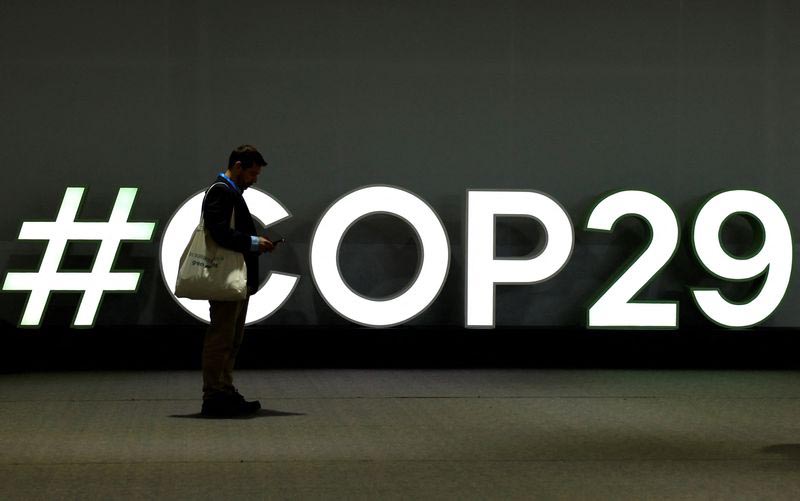BAKU, (Reuters) – Climate negotiators were warned yesterday that the “hardest part” was about to start in talks over how much money should be provided to developing countries to help them adapt to climate-fuelled weather disasters and transition to cleaner energy.
Figuring out what form that funding takes, who pays and how much is central to the COP29 talks. With a notional Friday deadline looming, frustration over the lack of progress so far was starting to seep out of the negotiating rooms.
The chief negotiator of the COP29 summit’s host Azerbaijan said “now the hardest part begins” ahead of a fresh text which is due to drop at midnight (2000 GMT) in the capital Baku.
Progress at the annual summit is typically marked through regular draft documents that get whittled down to a final deal.
Australia’s environment minister Chris Bowen, tasked by the COP presidency with gathering the range of views in the negotiating rooms, said he had heard three proposals for the annual figure to be given by richer governments.
These were $900 billion, $600 billion and $440 billion, which compared with a previously announced starting point of $100 billion from the European Union.
EU climate commissioner Wopke Hoekstra said the bloc was not willing to talk about the figure until it had more structural details, adding: “Otherwise you will have a shopping basket with a price, but you don’t know exactly what is in there”.
Egypt’s Minister of Environment, Yasmine Fouad, said countries had agreed not to treat the better off developing nations the same as richer ones when it came to paying in.
Such a move was non-negotiable for many countries.
Ana Toni, Brazil’s National Secretary for Climate Change, told Reuters it was a “red line for Brazil”, host of the latest G20 meeting that urged faster action on climate.
Yalchin Rafiyev, Azerbaijan’s chief negotiator, said he would look to ensure the next draft document was streamlined, to help reach a successful conclusion
“Mindful of the time remaining until the end of the COP29 … we will have shorter, more concise, straight to the point, texts that will definitely enable the parties to get engaged in more focused discussions,” he said.
While talks on finance have been slow, those on speeding up efforts to cut climate-damaging emissions are proving as tough.
After agreeing a landmark deal to transition away from fossil fuels in Dubai last year, countries had so far failed to agree on language that would take that work forward in Baku.
OPEC Secretary General Haitham Al Ghais used a speech at the summit to say crude oil and natural gas were a gift from God, echoing words of Azerbaijan President Ilham Aliyev, whose opening speech hit out at Western critics of the industry.
Getting a fresh commitment on cutting emissions more quickly has been thrown into sharp relief by a growing belief among scientists that the world’s aspirational goal of limiting global warming to 1.5 degrees Celsius could soon be beyond reach.
Recent trends, if not changed, “will drive us to crossing 1.5 in the early 2030s or even slightly before”, said French climatologist Robert Vautrad.
Vautrad is co-chair of the U.N. Intergovernmental Panel on Climate Change’s Working Group 1 which assesses the physical science of climate change.




